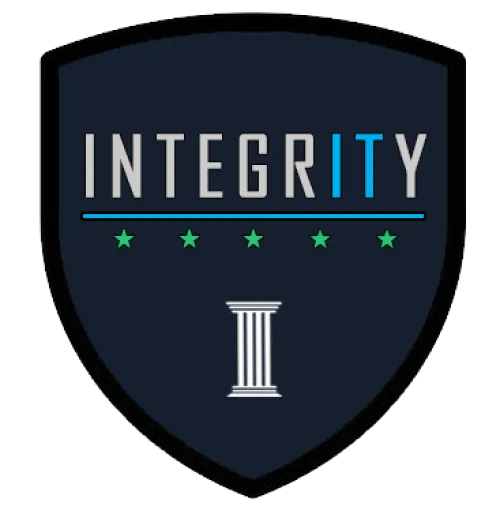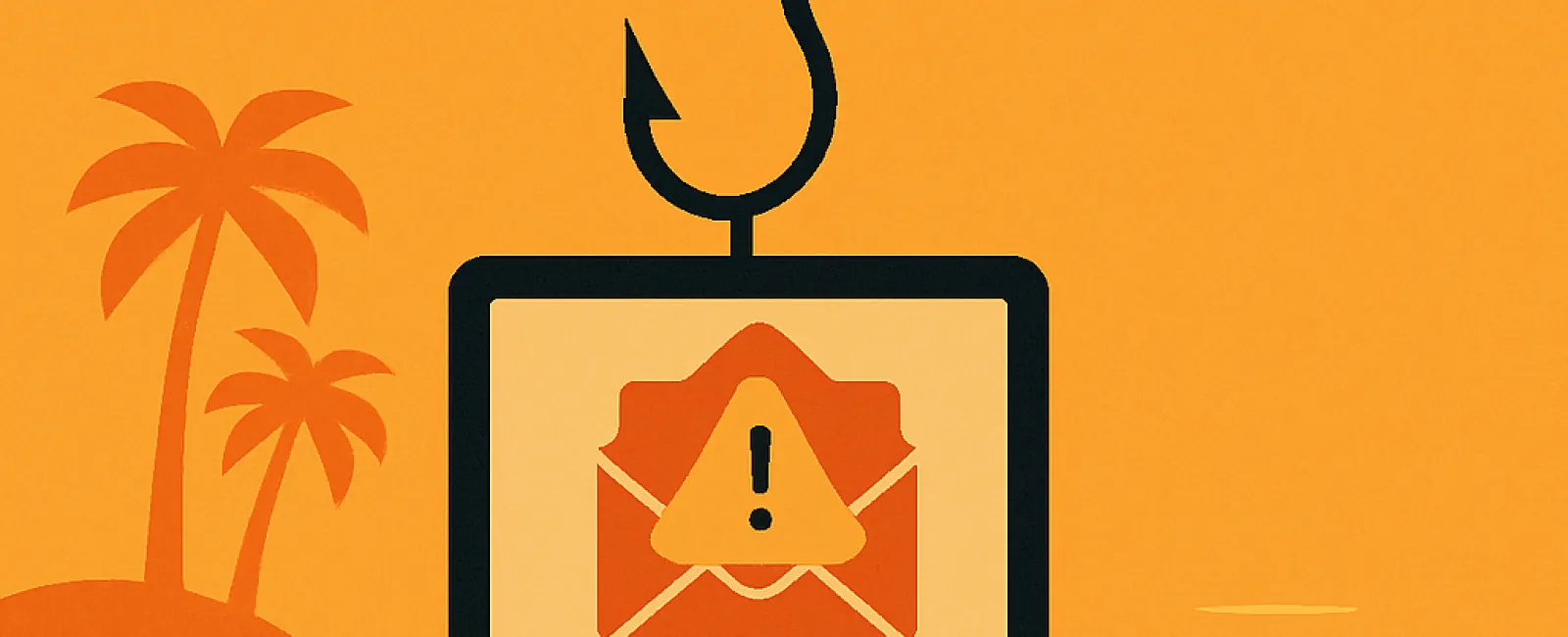August 18, 2025
You
and your employees may be getting back from vacation, but cybercriminals never
take a day off. In fact, data shown in studies from vendors ProofPoint and Check Point indicate that phishing attempts
actually spike in the summer months. Here's how to stay aware and stay
protected.
Why
The Increased Risk?
Attackers
use your summer travel bug to their advantage by impersonating hotel and Airbnb
websites, says Check Point Research. They've uncovered a sharp increase in cyberthreats
related to the travel industry - specifically, a 55% increase in the creation
of new website domains related to vacations in May 2025, compared to the same
period last year. Of over 39,000 domains registered, one in every 21 was
flagged as either malicious or suspicious.
Late
summer is also back-to-school time, which means an uptick in phishing attempts imitating
legitimate university e-mails, targeting both students and staff. While these
threats might not affect your industry directly, there's always a chance that
employees pursuing their master's degree or planning a vacation will check
their personal e-mail on their work computer - and it takes only one wrong
click for cyberattackers to have access to all of your business's data.
What
To Do About It
While
AI is making cybersecurity stronger and workflows smoother, it's also making
phishing attacks more convincing. That's why it's important to train yourself
and your team on what to look for, to avoid clicking on a malicious link.
Safety
tips to prevent attacks:
·
Keep
an eye out for shady e-mails. Don't
only check for misspellings and poorly formatted sentences in the body of e-mails;
AI can write e-mails for attackers just like it can for you. Also examine the e-mail
address of the sender and the text of the link itself, if visible, to make sure
everything looks legitimate.
·
Double-check
URLs. Misspellings
in the link text or unusual domain endings, like .today or .info, can be an
indicator of an attack. Domain endings like these are often used in scam sites.
·
Visit
websites directly.
It's always better to search for the website yourself, rather than clicking on links
in any messages or e-mails.
·
Enable
Multifactor Authentication (MFA).
Setting up MFA ensures that even if a breach does occur within your company,
your login credentials will remain protected - and so will any data secured
behind them.
·
Be
careful with public WiFi.
If you need to use public WiFi, use a VPN for additional protection when accessing
secure information, like booking portals or bank accounts.
·
Don't
access personal e-mail on company devices. Accessing personal e-mail, messaging or social media
accounts on business devices increases your risk. Keep personal accounts on
your personal devices, and work-related accounts on the work devices.
·
Ask
your MSP about endpoint security.
Endpoint detection and response (EDR) software can monitor your desktops and
mobile devices, detect and block phishing attempts and malicious downloads, and
alert your MSP immediately in the event of a breach, drastically limiting your
data's exposure.
Phishing
attempts become more sophisticated every day, and AI is only speeding that
process along. Because of this, it's essential to keep your team well-informed
of the risks; knowledge is the best defense against phishing attacks. Stay
informed and stay safe!
Start the season secure - click here or give us a call at 615-200-7007 to book your FREE network assessment today.

